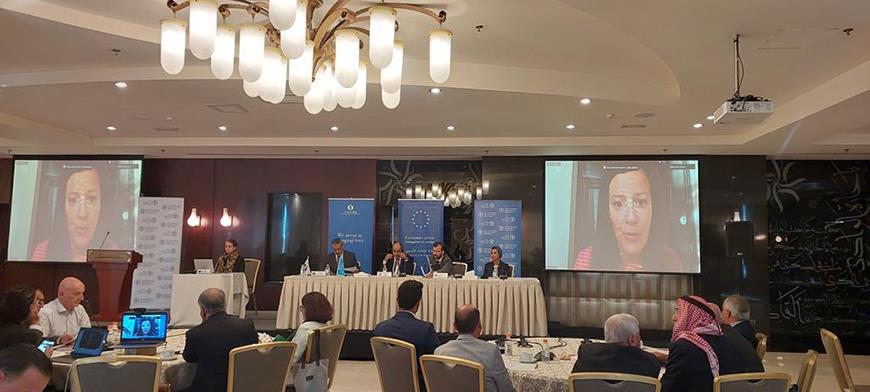
Workshop Focuses On Strides Towards Sustainability For Jordan's Olive Oil
AMMAN — The European Bank for Reconstruction and Development (EBRD) and the Food and Agriculture Organisation of the United Nations (FAO) in collaboration with the Ministry of Agriculture on Tuesday convened a workshop which focused on ensuring the sustainability of Jordan's olive oil industry, from tree to bottle.
Jordan's 3000-year-old olive groves – some of the oldest and finest in the world – are increasingly threatened by climate change and water scarcity, according to an FAO statement.
The workshop, titled“Fostering the development of the olive oil sector in Jordan: pathways towards sustainability”, aimed to strengthen the skills of small businesses and producers, and boost governmental capacity to build a more productive, competitive, sustainable and resilient olive oil sector, the statement said.
The workshop, which featured the participation of partners and industry representatives, was financed by the European Union through the EBRD's Trade and Competitiveness Programme
Ali Abunukta, advisor to the minister of agriculture and Jordan Agriculture Engineers Association president, delivered a speech on behalf of the organisation's president, saying:“Securing a sustainable future for the olive oil industry in Jordan is vitally important culturally and economically. Together with our partners, we are supporting producers and helping small- and medium-sized businesses succeed by maximising quality and promoting resilient production in the face of climate change and environmental challenges.”
An estimated 80,000 agricultural workers depend on olive oil production for their livelihoods in Jordan. Olive trees cover around 25 per cent of the total cultivated area and account for 73 percent of all fruit trees planted in the country. Over the last decade, olive oil production averaged 23,000 tonnes annually with sales mainly to domestic markets, according to the FAO statement.
Yet, the sector faces major challenges, such as high production and operational costs, increasingly erratic climate conditions, water scarcity and growing international competition.
While olive trees benefit from a natural resilience to hot and dry conditions, the sector requires investment in infrastructure and capacity to increase productivity and quality as well as maximise the visibility of Jordan's olive oil on international markets, said the statement.
To date, under the EBRD-FAO Cooperation Programme, and with the support from EBRD's Trade and Competitiveness Programme, over 90 olive oil producers, farmers, millers, oil producers and agro-engineers in Jordan have been trained to increase their yields, and enhance product competitiveness and quality, the FAO statement said.
According to the FAO, an ongoing training series is empowering millers, farmers and agro-engineers from the agriculture ministry with the latest knowledge and innovation in milling, manufacturing and sustainable agriculture practices, building on knowledge and best practices gathered from within the region. The comprehensive training materials are available for free online.

Legal Disclaimer:
MENAFN provides the
information “as is” without warranty of any kind. We do not accept
any responsibility or liability for the accuracy, content, images,
videos, licenses, completeness, legality, or reliability of the information
contained in this article. If you have any complaints or copyright
issues related to this article, kindly contact the provider above.

















Comments
No comment